Papers by Gonçalo Nuno Carreira Pereira
Lecture Notes in Computer Science, 2013
One of the most pervasive concepts in human interactions is social power since many social situat... more One of the most pervasive concepts in human interactions is social power since many social situations entail disputes of social power. These disputes are power games and range from simple personal reasoning to the exercise of specific power strategies, which enhance or assert one's power. Recognizing the importance of such interactions and how they can enhance autonomous agents' socially intelligent behaviors, we present a formalization of the fundamental bases of power and conceptualize the diverse forces that should underlie an agent's deliberative decision process. Different bases of power stem from diverse factors and have particular dynamics and effects. The objective of this work is to establish a theoretical basis for social intelligent agents capable of both being aware of and manipulating social power.
Neste trabalho apresenta-se uma abordagem didática de uma visita de estudo a um Jardim Botânico, ... more Neste trabalho apresenta-se uma abordagem didática de uma visita de estudo a um Jardim Botânico, segundo uma abordagem Inquiry-Based Science Education (IBSE). A atividade teve como participantes 29 alunos do 8.º ano de escolaridade e foi estruturada com aulas de preparação, visita de estudo e aulas de consolidação, seguindo o modelo teórico dos 5 E’s de Bybee (2002). Verificou-se que a atividade promoveu o desenvolvimento de competências investigativas, promovendo também a motivação dos alunos para a aprendizagem das Ciências Naturais. Ao longo da atividade, implementaram-se vários instrumentos e estratégias de avaliação formativa, dando aos alunos a oportunidade de melhorarem constantemente o seu trabalho.
A learning strategy centred in an inquiry-based field trip to a botanical garden, structured with... more A learning strategy centred in an inquiry-based field trip to a botanical garden, structured with a pre-visit planning and follow-up lessons will be presented. Additionally, the evolution of students’ knowledge and investigative skills was assessed by a checklist, rubrics and pre and post conceptual maps. The students’ perception about the learning strategy was analysed by their narratives produced after the implementation. The learning strategy, and the feedback provided throughout the activity, enabled the improvement of students’ performance, the development of inquiry skills and the motivation of students for learning natural sciences.

The purpose of this paper is to reflect about the tutor's role in online problem-based (PBL) ... more The purpose of this paper is to reflect about the tutor's role in online problem-based (PBL) courses. It is based on the experience of 5 tutors and 27 in-service student teachers, organized in groups, in a one semester blended learning course on school health promotion as part of a postgraduate university program. Two forms of online interactions in each tutorial group were considered: a synchronous one, using Windows Live Messenger, and an asynchronous mode using Moodle. Synchronous sessions allowed discussing the evolution and the difficulties found in PBL process. During these sessions Google Docs was used as a white board. Different steps of PBL process were worked either asynchronously or in presence. All the interventions were registered and analysed. Students answered to a questionnaire on tutors' performance. Tutors play a role of central importance in online learning environments since they enable participants' interactions and experiences leading to meaningful ...

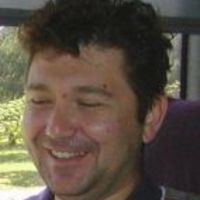
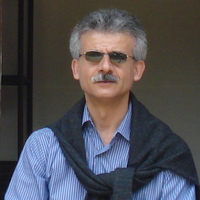

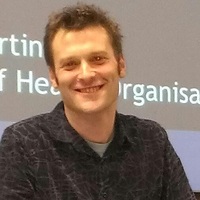
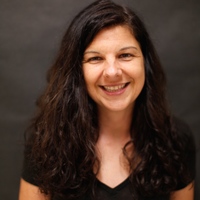
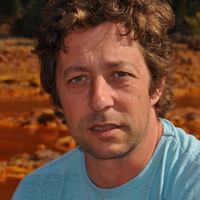




Uploads
Papers by Gonçalo Nuno Carreira Pereira
The first part of this presentation will report the Work in collaboration with NUCLIO (Núclio Interativo de Astronomia e Inovação em Educação) that was enhanced by one 50 hours teacher training workshop. In this part are presented several learning activities centered on students or in the teacher or the scientists but always gives privilege to the learning of students in an active way. The objectives of this annual project were to motivate students in sciences in general and space sciences in particular; to promote quality learning in these areas; to promote the learning of science in a multidisciplinary way and to promote learning through Information and Communications Technology. The challenge started with the participation in Workshops and Online Presentations about the Researchers European Night and Space Week of six 7th (5) and 8th (1) grade classes. This first part of the year permitted the students to have their first contact with scientists and with Space Sciences as well as to learn astronomy with their mobile phones. The three novelties were very motivating to the students because they were not used to them and it was really interesting for them. The zenith of the year was the participation in the European Project "Our Space Our Future" accompanied by the teacher training workshop. All 14 7th grade classes participate in the project. The initial idea was to promote it for the hour of the week when the Science Teachers were together with students in a multidisciplinary environment. But with time other teachers from different subjects came along. The project applied pre and post-tests. Two scientists from NUCLIO came to introduce the project, to motivate the students and to know what were the ideas of students about Space Sciences. The Teachers and Classes that did not have the opportunity to be introduced by the teachers’ trainers were introduced by their peers who were with the scientists, who became models to these teachers develop the activities on their own with the pairs, building a spirit of fellowship between peers. Is worth mention the support of the Teachers Trainers directly in the classroom and with teachers which built confidence on teachers to do it themselves. In the next session, the students explore the themes of Living in Space, Space jobs, and Investment in Space. In the 3rd session, they explored a NASA application where they could learn the knowledge and the technology that was derived from Space Exploration and Investigation in our Homes and in our Cities. In the next sessions, the students made two investigations. One about their Space Job and another about researching some elements of the community about Space Sciences. This work contributed to the motivation, learning, and development of research skills, among others. In terms of teacher training, in the workshop the teacher trainers perform like they would in the classroom creating an isomorphic training practice between classroom and workshop. The fact that the teacher trainers went to the classrooms create an environment of confidence and career development enhancing teachers to give the step forward to new practices.
The second part of this presentation will describe classroom activities performed with the five classes of the Science Teacher, in special the class that he was the headteacher, enhanced by mainly several short teacher training, a formation action and a teacher training workshop. This work was the continuation of the first part, but with fewer classes in the school. This part begins with just one class, the one he was Headteacher. This work was supported by short term teacher training focused of one of themes that soon will be unveiled promoted by esero (European Space Education Resource Office). This fact led to the teacher to apply the learning activities in posterior school years to feel prepared, confident and secure. This class had the opportunity to work on programming in Scratch and Phyton, on machine learning, and on climate research in esero projects Astro Pi - Mission Zero and Space Lab and Climate Detectives. In Climate Detectives, they were introduced to EO Browser. These projects were developed in a room with computers. In the following part of this work, all my five 7th grade classes participate. This work was supported by a teacher training workshop promoted by the Porto Planetarium but without the presence of teacher trainers in the classroom. The teacher developed the work in the classroom independently without any help in an autonomous way. He prepared the learning materials on the base of the materials given on the presential session and mainly with a internet research about the project. The students worked in the program SDSS (Sloan Digital Sky Survey), which is mapping the Visible Sky from Earth by multispectral images. The students learn about the project through its Aluminum Plates, which motivate them much because they were in contact with a scientific object, small videos about the project, and the platform of the project where they could explore images of space, the spectrum of space objects and know more about the plate and the objects that were mapped with it.
These activities motivate very much the students, promoted learning and development of skills, and they experience different learning environments to which they were not accustomed. Information and Communication Technologies (ICT) can enhance the process of Teacher training, and how this can be used for Lifelong Competence Development of teachers. Learning methodologies and training soft skills can be further enhanced by the use of ICT (Stefanov, Naskinova, & Nikolov, 2007). There is a direct relationship between previous ICT training and the dimensions of communication and collaboration, and content creation. The development of digital teaching competence continues to be a challenge which must therefore be addressed, and it shall continue to be a key issue in the training of current teachers, as it is indeed a fundamental pillar for promoting a new way of teaching (Artacho et al., 2020).
Teacher training produces a ripple effect that positively impacts students, families and communities. Teacher training is a sustainable solution to development. Providing quality education creates opportunities, opens the door to well-paying jobs and ultimately will contribute to healthier communities. Teacher training only makes sense if it is able to serve the needs of students, teachers, the school organization and the educational community (Casanova, 2014). The Teachers Trainers provide support and promote self-realization in professional activity (Tovkanets, 2018). The longer lifelong teacher training, with support in the classroom is, contributes to a faster personal and professional development, enhancing the possibility of the learning resources get faster to the classroom and, consequently, to the students. In conclusion, lifelong teacher training consolidates teachers’ further professional and personal development, increasing their self-confidence to advance to new methodologies and practices.
Bibliographic References
Artacho, E. G., Martínez, T. S., Martín, J. L. O. M., Marín, J. A. & García, G. G. (2020). Teacher Training in Lifelong Learning—The Importance of Digital Competence in the Encouragement of Teaching Innovation. Sustainability, 12, 2852. DOI:10.3390/su12072852.
Casanova, M. P. (2014). Avaliação da Formação Contínua de Professores. Atas do XX Congresso da AFIRSE “Formação Profissional: Investigação Educacional sobre teorias, políticas e práticas”. Lisboa: AFIRSE. EDUCA/Secção Portuguesa da AFIRSE. (ISBN: 978-989-8272-17-1)
Stefanov, K., Naskinova, I. & Nikolov, R. (2007). ICT-enhanced Teacher training for Lifelong Competence Development. Proc. of IMICT 2007. Boston.
Tovkanets, H. (2018). Lifelong Learning in Enhancing Professional Teacher Training in the European Countries. Comparative Professional Pedagogy, 8(2). DOI: 10.2478/rpp-2018-0015
Conference Topic:
Best Practices in Astronomy Education and Outreach